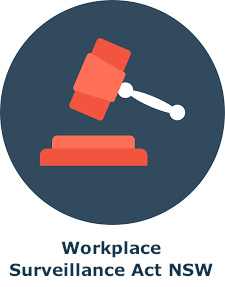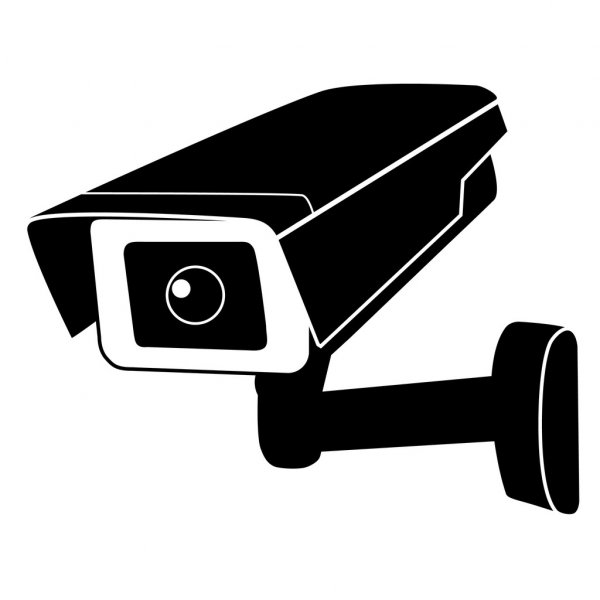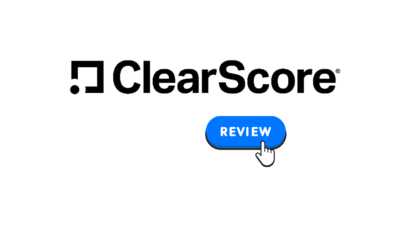Disclosure: Privacy Australia is community-supported. We may earn a commission when you buy a VPN through one of our links. Learn more.
Workplace Surveillance Act NSW

New South Wales is distinct in many ways, but its Workplace Surveillance Act of 2005 is an interesting piece of legislation that offers certain legal defenses and restrictions for both employers and employees concerning surveillance and monitoring.
The Workplace Surveillance Act specifically stops employers from monitoring employees whenever they like as well as outlines when such monitoring or surveillance is appropriate.
Furthermore, it prevents employees from being illegally monitored and dismissed unfairly by their employers when at work.
Let’s break down what exactly the Workplace Surveillance Act concerns and what it means for you, whether you’re an employer or an employee in New South Wales.
What is the Workplace Surveillance Act?
The Workplace Surveillance Act is a relatively unique piece of legislation as it’s the only anti-surveillance act that regulates surveillance within the workplace. It’s also exclusive to New South Wales, so it only applies to workplaces and employees within those borders.
The purpose of the act is to regulate the use of computer surveillance, camera surveillance, and audio surveillance technology, as well as geo-tracking technology. It outlines when it’s appropriate or legal to use these devices and when it’s illegal to do so as well.
This, in turn, essentially protects the privacy of employees both in and away from their workplaces, though there are some loopholes that law enforcement individuals can take advantage of.
Where Does It Apply?
As mentioned, the Workplace Surveillance Act only applies to New South Wales workplaces. Furthermore, many of these surveillance laws and restrictions only apply to places of work, not private residences.
As a result, it’s important to know exactly what the Workplace Surveillance Act entails and what it may mean for your activities.
Overt and Covert Surveillance

The Act explicitly defines both overt and covert surveillance.
According to the Act:
Overt surveillance happens when employers deliberately and overtly surveilled their employees.
Employees must be officially notified of this action to count as overt.
The Workplace Surveillance Act classifies all overt surveillance as unlawful unless employers provide 14 days’ notice before the surveillance begins and employees are notified before they start a surveilled shift
Furthermore, the overt surveillance notice has to contain details explaining what equipment will be tracking the employees, when the surveillance occurs, and any other applicable details.
Any surveilling equipment has to be clearly visible to any surveilled employees OR signs must be in place telling employees that they are being watched
Covert Surveillance
Meanwhile, covert surveillance is any surveillance that occurs without the knowledge of an employee. The Workplace Surveillance Act also strictly forbids covert surveillance of any type unless the employer in question gets a “covert surveillance authority”
A covert surveillance authority has to be granted by a magistrate and explicitly for the purpose of finding out whether an employee(s) is participating in any unlawful activity while at their workplace.
The magistrate in question may or may not issue the covert surveillance authority based on whether reasonable grounds exist to justify the surveillance and whether it will affect the right to privacy for any other, law-abiding employees
As you can see, the Workplace Surveillance Act strictly limits workplace surveillance under very firm guidelines. This theoretically prevents employees from being illegally or unreasonably surveilled just for coming to work.
This doesn’t necessarily protect employees who do participate in unlawful or illegal activity, however. It just means that any employer needs to prove that there is a reasonable cause for surveillance before they can obtain the covert surveillance authority needed.
Tracking/GPS Surveillance

Furthermore, the Workplace Surveillance Act regulates tracking surveillance or GPS surveillance for employees.
For example, there must always be a clearly visible notice displayed on a vehicle or piece of equipment that indicates that the equipment or vehicle is being tracked (or may be tracked at any point).
This prevents employers from explicitly tracking employees when leaving the office for work activities.
Other Digital Surveillance
The Workplace Surveillance Act also restricts computer and other types of digital surveillance. Specifically, it prevents employers from monitoring or recording any information accessed or sent under certain guidelines.
According to the Act, employers can only surveil an employee’s computer use when:
- ✅ They outline an existing policy about computer surveillance, so the employee knows that they are being watched
- ✅ The employer provides notice to the employee in advance (sometimes this is the same as the above)
- ✅ The employee is aware of the notice and understands all the policies
Plus, the Act doesn’t allow any emails sent to or from an employee to be blocked. However, emails can sometimes be blocked if:
- ☑️ The workplace in question already has a computer policy outlining this feature
- ☑️ The email contained a virus or other harmful types of malware
- ☑️ The email was spam or sufficiently of a “spam-like” nature
- ☑️ The email was sufficiently offensive, harassing, or menacing to another employee or any other person
Of course, using a top cheap VPN or a great secure browser can help to protect your online activities even if your employer tries to snoop.
How Does the Act Protect You?

The Workplace Surveillance Act effectively protects both employees and employers from getting in trouble with the law.
It protects employees by defending their right to privacy and preventing their employer from snooping on them without any good reason.
This also prevents employers from overstepping their bounds, such as tracking employee activities or movements while they are “on the clock”.
Employers are similarly protected since the Act explains exactly when and how they can surveil their employees legally.
This prevents them from illegally spying on their employees and opening themselves up to lawsuits. As a result, they can safely police their workplaces with reasonable restrictions and monitoring policies so long as those policies are clearly described.
Additionally, the Workplace Surveillance Act prohibits any kind of surveillance in certain activities, guaranteeing the right to privacy in areas including:
- ✅ Changing rooms
- ✅ Showers and bathing facilities
- ✅ Toilets
- ✅ Etc.
This prevents employers from gathering illicit or sexual material on their employees in any context, regardless of whether or not they are undertaking illegal activities. Thus, any employer should make sure that their surveillance doesn’t infringe on these rights.
Note that the Workplace Surveillance Act does not necessarily protect employees from being spied upon by law enforcement while at work. Law enforcement officers may break many of these restrictions if there is “reasonable cause” or it is for the “public good”.
Recent Examples of the Workplace Surveillance Act in Action
2019 saw a recent examination of the Workplace Surveillance Act in the case Krav Maga Defence Institute Pty Ltd t/a KMDI v Saar Markovitch. In a nutshell:
- ✅ The case revolved around claims of unfair employee dismissal
- ✅ The employer said that an employee had been terminated in accordance with the Small Business Fair Dismissal Code
- ✅ The above Code provides certain rules for employee dismissal
- ✅ And, if followed correctly, prevents employees from claiming unfair dismissal
- ✅ The employee in question, Mr. Markovich, claimed that he was terminated due to safety concerns
- ✅ According to the case, Mr. Markovich taught Krav Maga: a type of Israeli self-defense martial art.
- ✅ This martial art was inherently high risk due to its lethality, which requires that instructors closely supervise any trainees
- ✅ Mr. Markovich was reportedly terminated because he did not provide sufficient supervision to the students
- ✅ He was an instructor at a gym that taught Krav Maga
- ✅ The case came about since the owner of the gym observed through CCTV footage that Mr. Markovich is not properly supervising the class
You can see the issue. Clearly, the owner of the gym illegally spied on his employee. Even though Mr. Markovich should have been supervising the class more dutifully, the means by which the gym owner obtained the information was illegal.
As a result, the dismissal was ruled illegal and the overall case proceeded to further court.
What Does This Mean for You?

While the Surveillance Devices Act protects your conversations, the Workplace Surveillance Act protects any and every employee who is carrying out regular activities in the workplace.
Although it is important to note that it does not shield employees from engaging in illegal activities, it is worth highlighting that legal provisions exist to prevent employers from engaging in unlawful surveillance of their employees without proper justification.
In order to obtain access to specific documents or conduct surveillance, employers typically need to fulfill certain requirements, such as obtaining a warrant from a magistrate. These measures are implemented to safeguard the privacy and rights of employees, ensuring that employers cannot unlawfully intrude upon their personal information without sufficient cause.
This means that employees don’t need to worry about being unfairly dismissed from their workplaces, even if they somewhat slack during their duties.
However, employees must also take it upon themselves to note when an employer has signs or policy agreements clearly outlined that explain their right to monitor those employees.
Conclusion
All in all, the Workplace Surveillance Act is a relatively effective act that prevents employers from abusing their power and stops employees from abusing the criminal justice system to push back against legitimate dismissals.
It’s an excellent piece of legislation that protects both sides of the employer-employee contract by fairly outlining the conditions under which monitoring may occur.
Furthermore, it gives employers guidelines for fair monitoring so they don’t get sued just for dismissing an employee that is performing illegal activities or not performing their job duties.
You Might Also Like:




